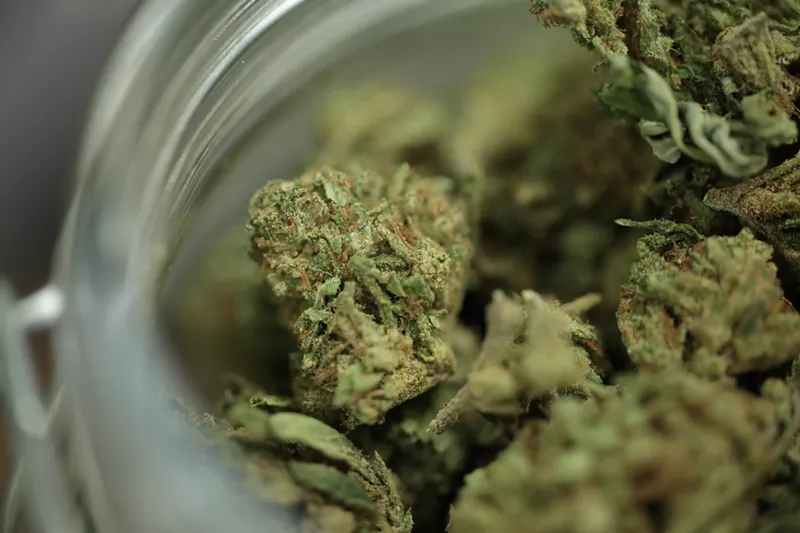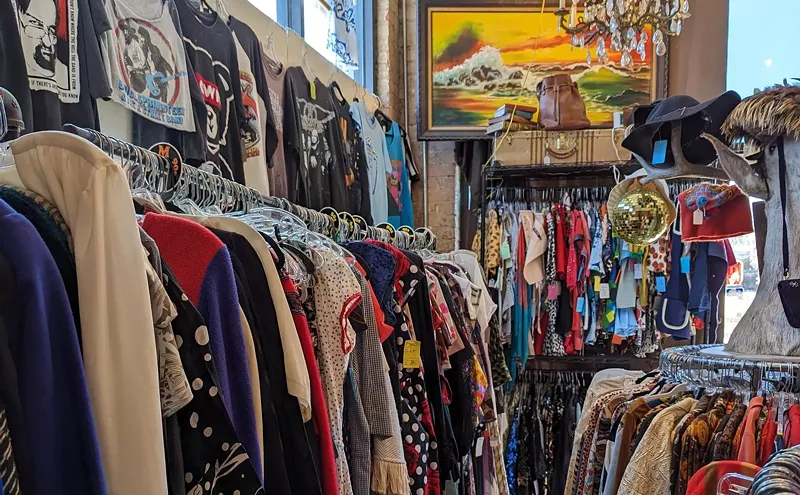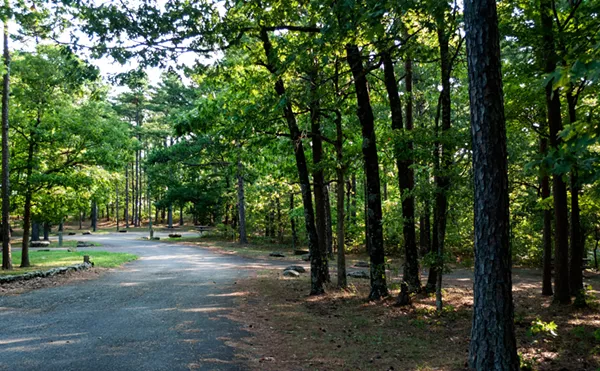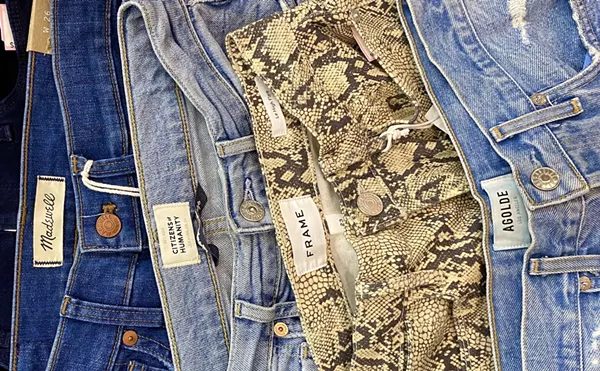“A lot of my customers were going to the brick-and-mortar places and coming to me less,” James says. “I totally understand it, but it’s hard not to worry.”
James is a white 27-year-old who works in marketing and sells marijuana as a side hustle. Like the other dealers interviewed for this story, he was granted anonymity so he could discuss his illegal side job. (He would like to point out his staunch support for marijuana legalization.)
“Ohio legalized weed before we did,” he says, the “we” referring to Texas. “Think about that: Ohio legalized weed before a state that is supposedly this hub for innovation.”
That said, James acknowledges that legalization — however unlikely it is — would bring an end to a gig that has already been hindered by the popularity of hemp shops. Even “Dry January,” an annual tradition in which participants abstain from alcohol consumption, doesn’t offer the boom times it once did.
“Don’t get me wrong: I still had a good month, all things considered,” he says. “But was it good compared to this time last year, or the year before that? Not really, no.”
According to Bloomberg, Fortune and several studies, Dry January boosted the nationwide cannabis market. Weed sales grew in several states as legal businesses marketed to consumers who have temporarily given up alcohol. One survey indicates that roughly one-third of Dry January participants under 25 used weed at some point in January 2024. Further, cannabis companies like Verano, Curaleaf, Tilray and many others are projecting revenue growth.
This trend held true in Dallas, but here, the story is more nuanced because of. the legality of hemp and the illegality of cannabis.
Multiple dealers and legal hemp businesses confirmed their sales were buoyed by Dry January, just as many bars told the Observer the opposite was true for their watering holes. Still, the month offered better news for those brick-and-mortars mentioned by James.
Troy, a manager at Dallas Hemp Company, confirmed his store saw an uptick in sales. The shop, which has been on Garland Road for about two years, sells legal hemp and hemp-derived products. Troy says he and his team spend a lot of time countering myths about what is legal and what is not.
“There are people who are uneducated and make assumptions about things, so we create a space of education,” he says. “You have people who are trying to find alternatives to smoking traditional cannabis, and hemp and our products are a good source, especially when you're able to ask the right questions to the right people. That's why we say education is key. You should know what you're putting in your body.”
Dallas Hemp Company also hosts musical performances, which are a key part of its ongoing efforts to grow the shop’s existing customer base. Those efforts ultimately cut into the customer base of dealers like James, though the true competition is between the products.
Troy’s store sells delta-8 and delta-9 products derived from hemp, which can offer a potent experience that Troy says is “close, maybe even one and the same” to the experience offered by cannabis.
His patrons can be forgiven for being confused.
Legally speaking, hemp is a cannabis plant containing 0.3% or less of the compound tetrahydrocannabinol (commonly known as THC); any product with more than 0.3% THC is considered marijuana. Republican efforts to regulate delta-8 and delta-9 products have further muddied the legal picture, as have raids on the hemp shops that have sprung up throughout the country since the national Farm Bill legalized hemp production in 2018.
Amid this confusion, weed dealers are finding their profits diminishing in much the same way that a small business might find itself imperiled by the relative ease and variety of options offered by a big box store.
Bri, a nonbinary Dallas resident who hopes to undergo gender affirmation surgery this summer, says they have been effectively pushed out of the weed game by several factors, including the rising popularity of delta-8 and delta-9.
“Most of my friends have switched over [to buying legal hemp products],” they say. “It's less complicated than going through a dealer, and far less risky. For most people, going through a dealer is a lot of hassle.”
Bri adds that their clientele base was largely made up of friends and people they met through dating apps, and while many of those friends now frequent hemp stores in Dallas, others drive to states like Colorado or New Mexico to “buy in bulk” from a cannabis dispensary then return home.
“Don’t get me wrong: I still had a good month, all things considered ... But was it good compared to this time last year, or the year before that? Not really, no.” James, a weed dealer
tweet this
“I was only providing flower, too, so I've also suffered from the shift towards gummies, which are inherently healthier,” Bri says.
Another dealer, who asked to go by “Ken,” echoes Bri.
“January can be a bit of a toss-up,” Ken says. “This year was pretty good, all things considered, but you have to factor in Dry January and new year’s resolutions. A lot of people try to give up smoking, so they may go for something like edibles or gummies.”
The health component of this trend is worth a closer look. As noted by Fortune, Gen Z is simultaneously driving the success of the cannabis industry and shaping the future of the alcohol industry.
The cannabis research firm New Frontier Data recently discovered that 69% of Americans aged 18 to 24 prefer cannabis to alcohol, and as alcohol companies attempt to capitalize on these shifting tastes, weed-infused beverages are the fastest-growing category of product in the growing cannabis industry.
All of this is great news for Dallas businesses such as Hempire on Royal Lane, where the proprietor, Boss Lady, curates art- and music-driven events to attract customers.
“The new year has brought more curious consumers seeking remedies that don’t create addiction,” Boss Lady says, noting many of her customers are using products such as edibles and hemp-infused baked goods to cope with anxiety, sleeplessness and chronic pain.
But this doesn’t mean weed dealers such as Bri weren’t helping people in their own way. Bri stuck to marijuana, foregoing the sale of any harder drugs and focusing on customers they knew were responsible users.
One such customer was a military veteran with a wife and kid at home. The two got to know one another over the course of several sales, even developing something of a friendship.
“He told me he had anxiety and stress and a lot of struggles with mental illness,” Bri says. “He was smoking for medical necessity.”
The two have lost touch, but Bri is hopeful the veteran found another source of comfort. Meanwhile, Bri is lamenting the loss of income weed once provided, particularly as the prospect of large surgery bills looms ahead. They lost their longtime supplier after a falling out, and while Bri is confident that at least some of their clientele would be interested in buying flower products again, they haven’t been able to find a new supplier whom they trust.
“If I still had that side hustle of selling weed, I could pay for surgery easily,” Bri says. “Plus, I recently got my MBA, and the business side of me knows I'm not capitalizing on the existing market.”













